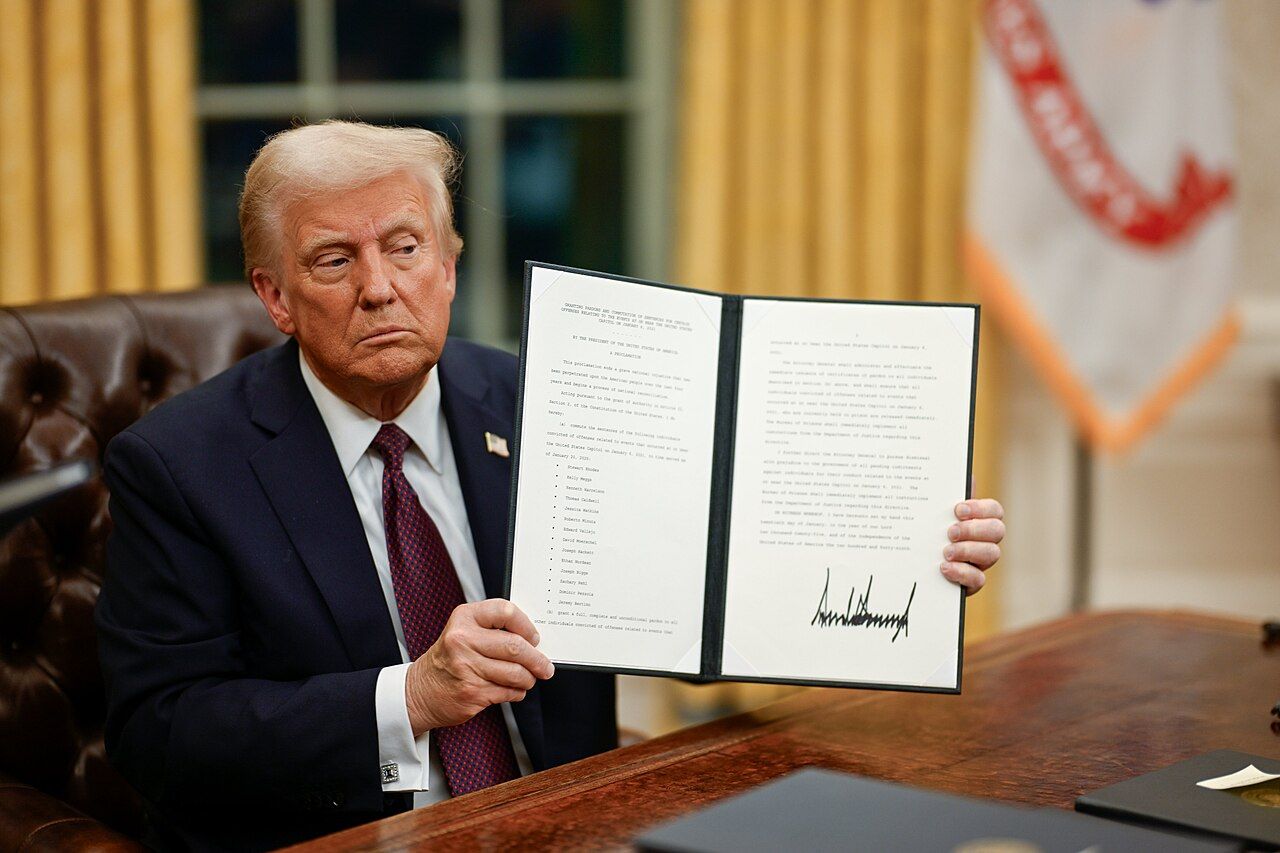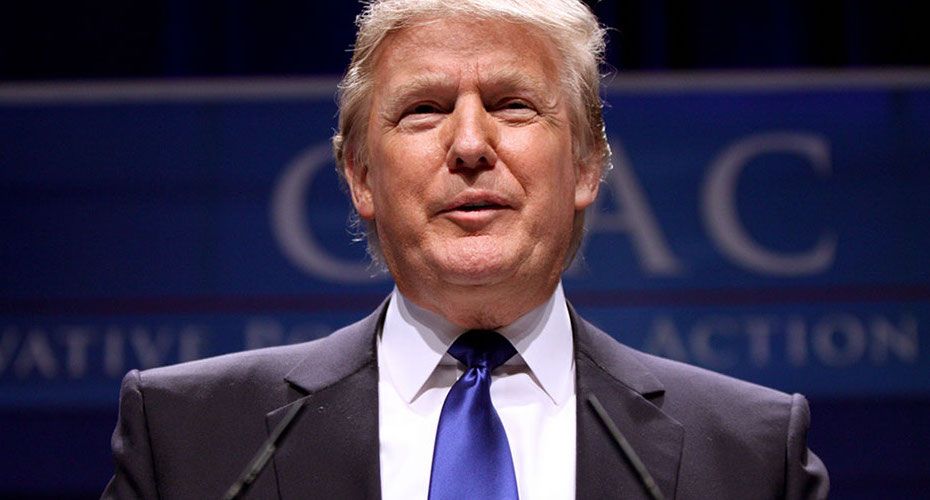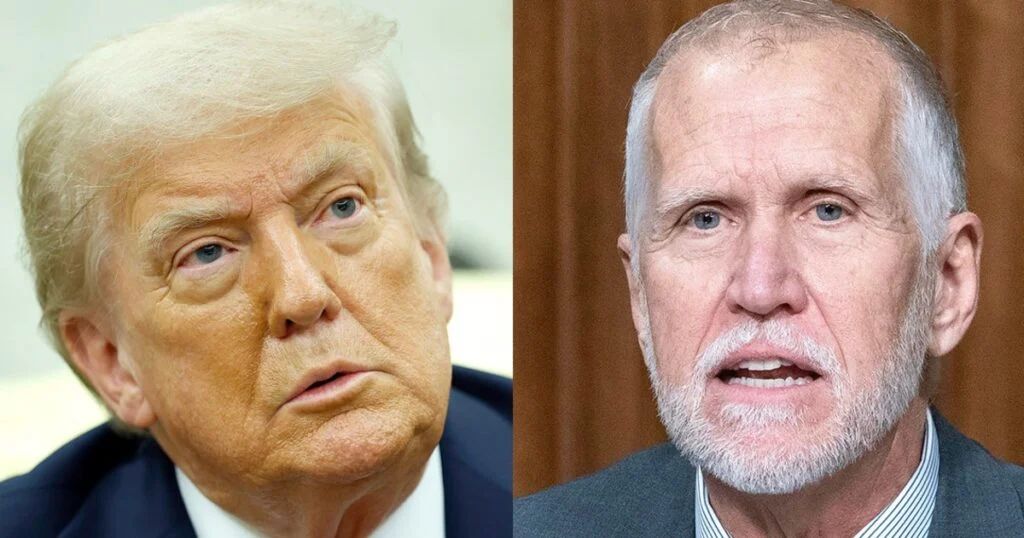
In a striking move that has sent ripples across Washington and through the nation’s economic institutions, President Donald Trump on Friday ordered the immediate termination of Erika McEntarfer, the commissioner of the Bureau of Labor Statistics (BLS). This directive came merely hours after the BLS released its latest employment data, which showed unexpectedly slow job growth for July and significant downward revisions for prior months. The President, in a series of social media posts, asserted that the job numbers were “phony” and accused the commissioner of having “faked” these figures to aid Democrats, specifically implying an attempt to bolster Kamala Harris’s electoral prospects.
This decision has ignited a fierce debate regarding the independence and credibility of federal statistical agencies, which are widely considered the bedrock of informed economic decision-making. Mr. Trump, without providing any evidence to substantiate his claims, maintained that Ms. McEntarfer, whom he described as a “Biden Political Appointee,” was responsible for fabricating data. He declared, “We need accurate jobs numbers,” and stated she would be “replaced with someone much more competent and qualified.”
The July jobs report, issued at 8:30 a.m. by the BLS, indicated that total nonfarm payroll employment showed “little change” in July, with an increase of only 73,000 jobs. The unemployment rate also remained stable at 4.2 percent. What garnered particular attention were the sizable revisions for the two preceding months: May’s figures were revised down by 125,000, from an initial +144,000 to +19,000, and June’s were cut by 133,000, from +147,000 to +14,000. Combined, employment in May and June was 258,000 lower than previously reported, a reduction the BLS attributed to “additional reports received from businesses and government agencies since the last published estimates and from the recalculation of seasonal factors.”

The President’s swift and unproven accusations stand in stark contrast to the long-established operational protocols of the BLS. The Bureau is the primary federal agency tasked with collecting and analyzing statistical data on various aspects of the U.S. economy, including employment, wages, and inflation. Its work has consistently been regarded as nonpartisan and rigorously independent, a reputation meticulously built over decades.
Experts and former officials, including those appointed by previous Republican administrations, have vehemently rejected the notion that BLS commissioners, or any staff, possess the capacity to manipulate these crucial figures. Kathy Utgoff, a former BLS commissioner appointed by President George W. Bush, underscored this reality in a phone interview, stating that commissioners “can’t rig the numbers.” She elaborated that the commissioner has “no ability to change the numbers that come out of computers at the last minute,” with BLS staffers providing the commissioner with the press release containing the final figures 36 hours before public announcement. The commissioner’s role, Ms. Utgoff noted, is limited to adjusting the wording of the press release, with the aim to “try to be boring” with that language.
Echoing Ms. Utgoff’s assessment, William Beach, who served as BLS commissioner under Mr. Trump from 2019, described the process identically in an interview on CNN. He affirmed that “By the time the commissioner sees the numbers, they’re all prepared. They’re locked into the computer system.” David Wilcox, a senior fellow at the Peterson Institute for International Economics and director of U.S. economic research at Bloomberg Economics, further attested to the agency’s independence. He stated in an email that the “rank and file of the BLS and the other statistical agencies are deeply imbued with the importance of independence,” emphasizing their commitment to “delivering the best possible estimates, even if and when the message is inconvenient for the president and his team.”
The July data indicated that the economy had added 486,000 jobs during Mr. Trump’s second term, a growth rate of 0.3 percent. This figure notably contrasts with the 954,000 jobs added, or 0.6 percent growth, during the same period in the preceding year. Stephen Miran, chair of the White House’s Council of Economic Advisers, offered a different explanation for the recent employment data, telling reporters that approximately “60% of the overall revisions were due to quirks of the seasonal adjustment process.” He also cited uncertainty surrounding tariffs and the Republican tax bill as potential factors that might have caused some firms to “hold off” on investments, expressing an expectation that “things will get materially stronger” now that “uncertainty is resolved.”

Yet, Mr. Trump’s reaction diverged sharply from his economic advisers. In a Truth Social post later that day, he announced Ms. McEntarfer’s immediate firing, alleging she “faked the jobs numbers before the election to try and boost Kamala’s chances of Victory” and questioning the most recent figures. He highlighted that Ms. McEntarfer was appointed by President Joseph R. Biden Jr., noting her confirmation by an 86-8 bipartisan Senate vote on January 11, 2024. This confirmation included votes from prominent Republicans such as now Vice President JD Vance and Secretary of State Marco Rubio.
The White House, when pressed for evidence supporting Mr. Trump’s claims, pointed to revisions made to job numbers under Ms. McEntarfer’s leadership. However, this action does not constitute evidence of manipulation. As former Commissioner Utgoff plainly put it, “Revisions are not mistakes, they are improvements.” The BLS website clearly explains that the agency routinely revises its figures as more comprehensive information becomes available, with monthly job estimates undergoing two revisions before a full year’s worth of figures are updated through an annual “benchmarking” process.
Mr. Beach, speaking on CNN, acknowledged that the May and June revisions were “big,” but underlined that “every time we publish on Friday, there are revisions to the previous two months. This is a survey. And a survey has sample returns.” Mr. Wilcox similarly commented that while the revisions were “indeed larger than normal,” they served as “a vivid reminder that the monthly estimates are just that—estimates.” He added that these estimates are “grounded in state-of-the-art statistical practices built up over decades, but they are not revelations of truth.”
Beyond the immediate July numbers, Mr. Trump also inaccurately described the timeline of past BLS announcements, especially those preceding the election. He claimed Ms. McEntarfer had released “beautiful numbers for Kamala, I guess Biden/Kamala,” “days before the election,” followed by an “8 or 900,000 overstatement, reduction” “right after the election,” which she supposedly “said she made a mistake.”

However, the factual record contradicts this narrative. A month before the election, on October 4, the BLS announced growth of 254,000 jobs for September. Then, on November 1, “days before the election” as Mr. Trump put it, the BLS reported weak growth of only 12,000 jobs for October, noting that strike activity and hurricanes likely influenced the estimates. This report led to a Fox News headline calling it “dismal” and providing “Trump last-minute political ammunition,” with his campaign declaring it “a catastrophe.” The October figure was, in fact, revised upward a month after the election.
Furthermore, Mr. Trump’s reference to an 800,000 or 900,000 reduction pertains to a preliminary estimate announced in late August 2024—well before the election. This estimate indicated that the number of jobs created over the 12 months ending in March 2024 would be adjusted downward by 818,000. This preliminary revision, part of the annual “benchmarking” process where BLS adjusts monthly survey figures using more comprehensive employer tax filings, was indeed larger than the average, but not unprecedented. For instance, the annual revision for 2019 under Mr. Trump’s first term resulted in a reduction of 514,000 jobs, and the 2009 revision saw a reduction of 902,000.
The firing of Ms. McEntarfer drew immediate and strong condemnation from a broad spectrum of economists, former government officials, and non-partisan organizations. William W. Beach, who served as BLS commissioner during Mr. Trump’s first term, publicly described the firing as “totally groundless” and warned it “sets a dangerous precedent and undermines the statistical mission of the Bureau.” He, alongside Erica Groshen, a former BLS commissioner under President Barack Obama, and other data experts comprising the Friends of the Bureau of Labor Statistics, issued a joint statement on August 1. Their statement unequivocally called Mr. Trump’s claim that Ms. McEntarfer intentionally reported false information “baseless” and asserted that such actions “undermine the credibility of federal economic statistics that are a cornerstone of intelligent economic decision-making by businesses, families, and policymakers. U.S. official statistics are the gold standard globally.”
Max Stier, CEO of the nonpartisan Partnership for Public Service, articulated a widely held concern, stating that Mr. Trump is “once again destroying the credibility of our government by firing expert and nonpartisan officials because he does not like the facts that they present.” Martha Gimbel, executive director of the Budget Lab at Yale, echoed this sentiment, asserting, “If you want people to stop trusting the numbers coming out of the Bureau of Labor Statistics, firing the person who is confirmed by the Senate to make sure those numbers are trustworthy is a real good way to do it.” Even Michael Strain, an economist at the conservative American Enterprise Institute, affirmed that “President Trump is completely wrong in asserting there’s been any sort of anti-Trump bias in the labor market data,” deeming the assertion “wholly unsupported.”

While Labor Secretary Lori Chavez-DeRemer issued a social media post supporting the firing, citing “a recent string of major revisions” that “raised concerns about decisions being made by the Biden-appointed Labor Commissioner,” this stance was largely isolated among senior officials. Deputy Commissioner William Wiatrowski, who joined the BLS during the Obama administration, is set to serve as acting chief during the search for a replacement. Vice President JD Vance’s communications director, William Martin, stated that Vance was “completely aligned with President Trump” and “glad to see him dismiss the BLS commissioner,” explaining that Vance’s bipartisan confirmation vote indicated a willingness to let nominations proceed even if he held disagreements.
Ms. McEntarfer, an economist with over two decades of experience in the federal government, including positions at the U.S. Census Bureau and the Treasury Department, briefly shared her perspective on X, calling it the “honor of my life” to lead the agency and emphasizing the vital work of its staff. Prior “missteps” during her tenure, such as Wall Street firms gaining early access to data, did not involve issues with the statistics themselves, according to reports.
Critics warn that this politicization of economic data and the potential for interference in independent agencies are characteristic of non-democratic countries, drawing unsettling parallels to regimes in Russia, Venezuela, or China. The erosion of trustworthy data, they argue, could severely impact businesses, consumers, lending institutions, and policymakers, all of whom rely on accurate and impartial economic indicators to make sound decisions.
Indeed, federal statistical agencies have been grappling with increasing challenges in recent years, including declining public response rates to surveys that form the basis of much national economic data. Compounding these issues are shrinking budgets; Mr. Trump’s proposed 2026 budget, for instance, aims to reduce BLS funding by 8 percent and reorganizes it, along with the Census Bureau and the Bureau of Economic Analysis, into a single statistical agency. Such cuts have already led to the BLS reducing its collection of data on consumer prices due to resource constraints, raising concerns among economists that this could eventually undermine the reliability of critical inflation data used by the Federal Reserve and in various economic contracts.

Federal Reserve Chair Jerome H. Powell, when asked about these cuts, stressed the paramount importance of federal statistical agencies, stating, “The government data is really the gold standard in data. We need it to be good and to be able to rely on it.” The current labor market, as suggested by the Federal Reserve’s most recent “beige book,” shows signs of employers delaying hiring due to “uncertainty,” particularly concerning the administration’s trade policies. This aligns with comments from Laura Ullrich, Indeed’s director of economic research for North America, who noted, “Based on what I was hearing from a lot of employers, I kept expecting to see a stagnant job report at some point, that’s what we got today.”
Mr. Trump’s pattern of expressing dissatisfaction with unfavorable economic data is not new, tracing back to his 2016 presidential campaign when he urged, “Don’t believe those phony numbers.” His recent actions extend beyond the BLS to the Federal Reserve, where he has repeatedly pressured Chair Jerome Powell to lower interest rates.
The abrupt dismissal of Commissioner McEntarfer stands as a potent symbol of an escalating tension between political expediency and the enduring principle of scientific integrity in public service. As the nation navigates a complex economic landscape and an increasingly polarized political environment, the question of whether its foundational data-gathering institutions can maintain their nonpartisan independence remains paramount. The trust placed in these numbers underpins not just policy and investment, but the very understanding citizens have of their own economic reality. Undermining this trust risks obscuring truth and inviting instability, a perilous path for any democratic society that values transparency and fact-based governance.



